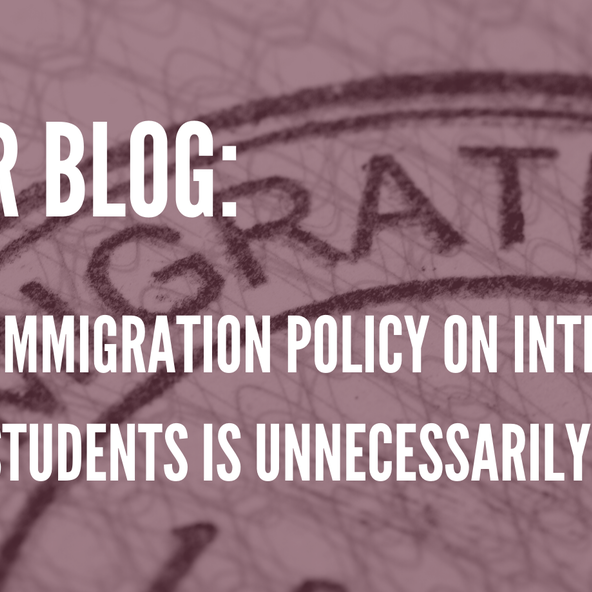
UPDATE: On Tuesday, July 14, the Trump Administration announced that it will rescind the policy referenced in this post, which would have barred international students from the United States if their colleges canceled in-person instruction during the COVID-19 pandemic, following several lawsuits filed by universities and states.
On Monday July 6th, the U.S. Immigration and Customs Enforcement (ICE) announced a new policy that puts international students at risk of being deported if their classes are fully online in the fall. With a half-dozen colleges and universities in the DC metropolitan region, and many more within a short commuting distance of the District, many individuals in Legal Aid’s client community will shoulder the impact of this policy change, which is unnecessarily strict and places an undue burden on international students.
To be clear, before the pandemic, international students were not allowed to have a full online class load. When the COVID pandemic forced the nation into lockdown, the Student and Exchange Visitor Program (SEVP) instated a temporary exemption which allowed international students to take all their classes online for the Spring and Summer semesters.
That exemption was modified last Monday and the statement released by ICE, says that “Nonimmigrant F-1 and M-1 students attending schools operating entirely online may not take a full online course load and remain in the United States.” This means if a college is going to use an in-person/hybrid model for classes, students will be allowed to stay. However, if classes are fully online or end up transitioning from a hybrid model class to fully online, then students must return to their home countries.
This decision of requiring international students to take in-person classes, forces them to decide between their health and visa status, as well as having staff and faculty members risk their health in order to preserve the status of students. If the pandemic situation changes, colleges may be forced to function remotely, allowing the government to require students to leave the country for no fault of their own.
While international students come here to learn new skills, establish their careers, and start a new phase of their lives, they also help build our economy. According to NAFSA, international students contributed $41 billion to the U.S. economy and created and supported nearly 500,000 jobs in the 2018-2019 academic year. They continue to be assets to our country even after they are no longer students. Among privately held startup companies, those with immigrant founders have created an average of more than 1,200 jobs per company, the vast majority in the U.S. If we lose immigrant students, we risk losing skilled and innovative people who can help develop our country. While we benefit from international students economically, they also add academic and cultural value to our universities and communities.
Over the last few years, policies on immigration have become stricter. Things like the travel ban, new and changing asylum policies, the attempt to enforce family separation, public charge rule, and termination of the Temporary Protected Status program are examples of how immigration policies have changed and become more hostile and inhumane. America was built off diversity, immigrants and people from all around the world. That shouldn't have to change, especially if it involves introducing policies that are cruel and short-sighted. The Trump administration keeps targeting immigrants and has used this pandemic as a way to push forward an anti-immigration agenda.
Like many other immigrants, some international students sacrifice a lot to study here in the US. With ICE’s new policy amid this global pandemic, students are increasingly anxious about their future. Some of them are not financially capable of returning home, some come from countries that have already closed their borders, but like all immigrants, they came to the U.S. with hopes for a better future and the government is letting them down.




